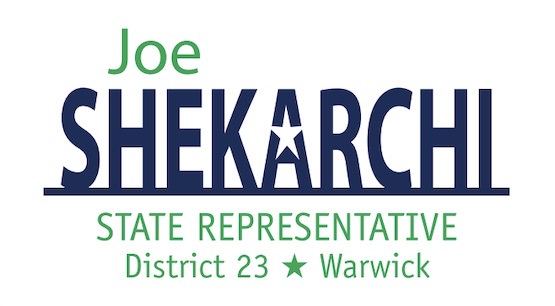Evictions Loom, But Help is Available for RIers Behind on Rent & Utilities, as Reed & Shekarchi Seek to Deliver Emergency Rental Assistance
With an eviction moratorium set to expire, the clock is ticking to identify those at highest risk of eviction and connect them to available rental assistance.
Thousands of Rhode Island residents are eligible for a new COVID-19 rental and utility assistance program that is designed to help tenants who faced financial setbacks due to COVID-19. State leaders want to ensure hundreds of millions of federal dollars earmarked to help people in need don’t go untapped. They are spreading the word to help ensure tenants and their landlords can take action to apply for the aid to pay for back rent or future rent.
U.S. Senator Jack Reed, Governor Daniel McKee, House Speaker K. Joseph Shekarchi, Majority Leader Christopher R. Blazejewski, Representative Grace Diaz and Senator Meghan E. Kallman joined with housing advocates and community leaders to highlight efforts to put money into the pockets of tenants facing eviction, strengthen neighborhoods and communities, and improve Rhode Island’s economy.
Utilizing $200 million in federal funding, the state worked with RIHousing and community partners to launch RentReliefRI. State leaders and housing advocates are encouraging Rhode Island renter households that may qualify for federal assistance to apply online or in person for a share of federal Emergency Rental Assistance funds.
RentReliefRI can pay for rent and some utilities owed back to April 1, 2020. The program also covers up to three months of upcoming rent. Utilities include electricity, water, trash, and heat. Renters may apply for help with paying for utilities even if they do not need help paying for rent. Depending on eligibility factors, applicants may receive a total of 15 or 18 months of assistance.
“June 30 will be here soon and we don’t know if the national eviction moratorium will be lifted. But we do know folks need help and there is money available to assist them. We’re trying to spread the word and connect people in need to the assistance they are eligible for. Avoiding preventable evictions helps individuals, families, neighborhoods, and communities. RentReliefRI has launched a platform where both renters and landlords who were financially strained by COVID-19 can go to get help with back rent or in some cases future rent payments, as well as help with utilities,” said Senator Reed, who helped include $25 billion for the Emergency Rental Assistance (ERA) program in the Consolidated Appropriations Act, 2021 (P.L. 116-260) as well as $21.55 billion in additional Emergency Rental Assistance funding in the American Rescue Plan Act (P.L. 117-2).
“Many Rhode Islanders are still struggling from the effects of the pandemic, and COVID-19 disproportionately impacted those who were already on the brink. However, there are resources available. Thanks to Senator Reed’s strong advocacy, federal funds are earmarked to help tenants and landlords. I strongly urge anyone who is eligible to take advantage of this program – we know that people have better outcomes across the board when they’re in safe, stable housing, and this funding will help people stay in their homes,” said House Speaker K. Joseph Shekarchi.
As of this week, over 5,500 applications for rental assistance have been filed, according to RIHousing. Over $1.2 million already has been approved or paid toward rent and utilities for over 115 households, with another 2,554 in the process of being certified.
Tenants and landlords may apply for rent relief funding, and cooperation between the two makes the process easier and helps speed up payments because information from both the tenant and landlord is required to successfully complete an application.
RentReliefRI can make payments directly to landlords and utility providers on behalf of renters. Applications will be accepted on a rolling basis.
Both landlords and tenants may initiate an application for the program. To help prevent misallocation of funds, the application requires tenants to submit information verifying their identity, income, residence and the cost of their rent and utility bills.
Who is eligible for RentReliefRI?
Tenant applicants must meet all of the following criteria to be considered for rent relief:
- Household income must meet certain income limits. Limits vary by location and household size. Click here to view income limits in your community.
- Must have qualified for unemployment benefits or have experienced a reduction in household income, incurred significant costs, OR experienced other financial hardship due, directly or indirectly, to COVID-19.
- Must show you are at risk of experiencing homelessness or housing instability. This may include submitting past-due rent and utility bills or eviction notices when you apply.
How do you apply to RentReliefRI?
Tenants and landlords can go to https://www.rihousing.com/rentreliefri/ or call 1-855-608-8756 to start an application and request assistance in completing the application.
Applicants can also get in-person assistance with their paperwork in several different languages at sites around the state, including: Center for Southeast Asians; Crossroads RI; ONE Neighborhood Builders; and Tri-County Community Action Agency.
Since December, Senator Reed has helped direct over $450 million in federal housing funding to Rhode Island, including rental assistance, foreclosure prevention, utility assistance, and funds to prevent homelessness and assist people experiencing homelessness. Senator Reed delivered $200 million for Rhode Island last December as part of the Emergency Rental Assistance program, as well as another $152 million for the Emergency Rental Assistance program for Rhode Island as part of the American Rescue Plan that was signed into law in March.
The state has already received the first tranche of $200 million and should receive the second wave of federal funds from the U.S. Treasury in the coming weeks along with more flexible guidance on how those funds may be spent.
